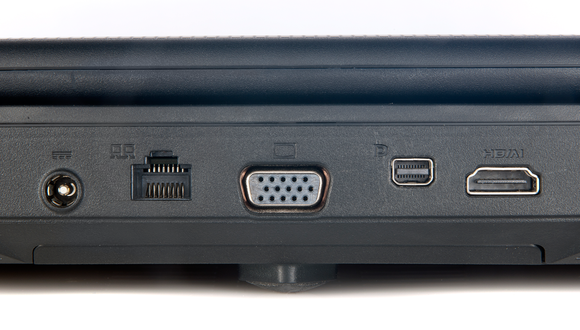How DisplayPort multi-streaming delivers new levels of multi-monitor madness
When a vendor sends us a demo system, it typically take great care to ensure that we experience the system exactly as the maker intends us to. So when VESA, the trade group responsible for the DisplayPort standard, said that it was sending PCWorld a multiple-monitor demo system similar to the one it exhibited at CES in January, I expected it to arrive bundled with a detailed guide and all the software needed to present DisplayPort in its best light.
Imagine my surprise when an MSI GX60 gaming laptop, two 24-inch Dell U2413 displays, and a 21.5-inch HP Elite L2201x showed up in the PCWorld Labs without so much as a user manual for any of the four devices. “Wow,” I thought. “They must be pretty confident that setting all this up will be self-evident.”
 Robert Cardin
Robert CardinAs things turned out, setup was pretty much self-evident. The GX60 has HDMI and VGA video outputs, but obviously I was more interested in its Mini DisplayPort. Both of the Dell monitors have full complements of digital video inputs (HDMI, DVI, and full-size DisplayPort, along with ports labeled ‘DisplayPort In’ and ‘DisplayPort Out’), but the HP display has only a DisplayPort input.
I connected the full-size DisplayPort on the first Dell to the notebook, plugged a second cable to that monitor’s DisplayPort Out, and connected that to the other Dell’s DisplayPort In. Then I attached a third cable to the second Dell’s DisplayPort Out and plugged it into the HP display to complete the chain.
To read this article in full or to leave a comment, please click here
search engine optimization blog click here for more info visit this site link

0 Comments:
Post a Comment
Subscribe to Post Comments [Atom]
<< Home